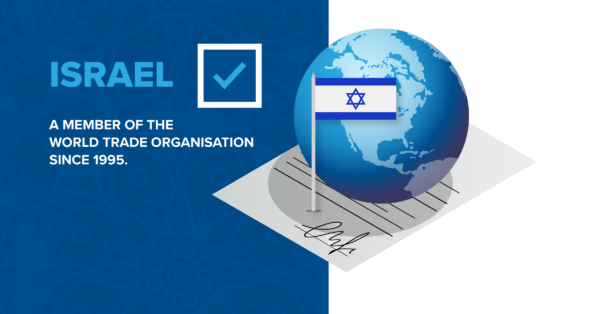
Overview
Covid-19 has fundamentally changed the way we live, interact and do business for the foreseeable future. The pandemic has already caused a significant economic impact on the world’s economy – affecting financial markets, tourism, manufacturing, export and import sectors, global supply chains, oil exports, and companies of all sizes.
As with the rest of the world, Africa’s economy has also already been hit hard by the Covid-19 economic disruption. According to UN estimates, African countries have so far lost an estimated USD 29 billion due to the pandemic. Also, the United Nations Economic Commission for Africa (ECA) has recently predicted that the “Coronavirus will shave 1.4% off Africa’s USD 2.1 trillion GDP”, owing to widespread disruption of business on the continent.
Behind these statistics though lies the human cost paid as a result of such a pandemic, as many will already have lost their loved ones, become unemployed, closed businesses, and now live in fear of the unknown. This is why traders, investors, governments and international organisations not only need to plan to mitigate the current negative effect of the pandemic, but will also need to plan and be prepared for the post-Covid-19 world.
To curb the spread of the virus and mitigate its negative economic impact, different countries have started to introduce different measures. The measures vary from strict lockdown to more lenient measures.
To illustrate this, we picked Kenya and Tanzania, two neighbouring countries and founding members of the East African Community (EAC). Below we will also discuss the trade impact of Covid-19 on these two countries, both at the global trade level, and on the cross-border trade which also includes the informal sector.
Government Measures
In Kenya and Tanzania, the two governments have so far taken differing approaches and measures to curb the spread of the virus and its impact on the economy.
In general, Kenya has taken stricter measures compared to Tanzania. For example, while Kenya has closed all its borders to all movements except for cargo, Tanzania left it late until Easter Sunday to suspend all international passenger flights.
Similarly, the Kenyan government has introduced a series of economic stimulus measures to cushion the effects on its economy, while it appears to be the Tanzanian government that has taken no such measures so far. Also, as of 25th April 2020 Kenya has extended the nationwide overnight curfew as well as the cessation of movement order affecting Nairobi, Mobasa, Kilifi and Kwale counties for a further 21 days.
Although all government offices are open for business in both countries, in Kenya all State and Public Officers with a pre-existing medical condition or aged 58 years and above, serving at top management (Job Group S) and below have been told to take leave or work from home. No such measures have been taken in Tanzania thus far.
Impact Overview
We believe that the current position resulting from the government measures in both countries can be summarised as follows:
| Measures | Kenya | Tanzania |
| TRAVEL | ||
| International Travel & border total lockdown | Yes |
Yes, (All International Passenger Flights) |
| TRADE | ||
| Airports – Cargo lockdown | ||
| – Imports | No | No |
| – Exports | No | No |
| Customs & ports lockdown | ||
| – Imports | No | No |
| – Exports | No | No |
| Cross-Border Trade | Yes (except cargo) | No |
| ECONOMIC MEASURES | ||
| Reduction of VAT & Corporation Tax | Yes | No |
| Reduction in Income Tax | Yes | No |
| Lowering Central Bank Interest Rate | Yes | No |
| Lowering Cash Reserve Ratio | Yes | No |
| Banning local manufacturers and distributors from exporting medical supplies such as N95 and 3ply surgical masks | Yes | No |
However, please see our comments below on the practical realities affecting trade into and out of Kenya and Tanzania.
Impact on Travel
Kenya
On 23 March 2020 the land borders between Kenya-Uganda and Kenya-Ethiopia were closed to all traffic, except for cargo trucks. However, the Kenya-Tanzania border at that time, has not yet closed.
On 25 March 2020 all international flights to and from Kenya were suspended except cargo flights.
Due to less travel to Kenya, the tourism and aviation industry has already been hit badly.
Tanzania
As of 12th April 2020, the Tanzanian Civil Aviation Authority suspended all international passenger flights
However, cargo flights are exempted from the suspension.
This will have a direct effect on the Tanzanian tourism sector that contributes 11.7% to the GDP of the country. The local airlines now focus on domestic routes.
Impact on Trade Facilitation
Kenya
Customs and the Kenya Ports Authority are open and operational. The Port of Mombasa, normally a bustling harbour has reported a decline in cargo flow. As a result, business at the port has been significantly affected as more cancellations and empty arrivals are expected to be registered.
The port of Mombasa serves as the main gateway to the East African landlocked countries such as Uganda, Rwanda, Burundi, Democratic Republic of Congo and South Sudan. The decline in cargo flow at Port Mombasa means these landlocked countries will also suffer from shortage of goods flowing into their country.
As for governmental authorities, the following trade related authorities are open and operational with restrictions due to many officials being ordered to take leave or work from home:
- Kenya Revenue Authority
- Ministry of Finance and Planning
- The National Treasury
- Ministry of Industrialization, Trade and Enterprise Development
- The KenyaNational Chamber of Commerce and Industry
Tanzania
Tanzania’s Customs and Ports authorities are open for business. However, the Port of Dar-es-Salaam is already showing a decrease in receiving cargo ships.
As for governmental authorities, the following trade related authorities are allegedly operating at full capacity, but with preventive measures such as handwashing, sanitizing and social distancing being observed.
- Tanzania Revenue Authority
- Ministry of Finance and Planning
- Minister for Industry and Trade
- Tanzania Investment Centre
- Tanzania Chamber of Commerce, Industry, and Agriculture
- Impact on Trade
Kenya
Import and Export
Kenya’s import sector has already been affected by the pandemic. Over 40% of Kenya’s imports come from China, and since most Chinese factories are on lockdown due to the pandemic, imports from China have decreased hugely.
In addition, in March 37 cargo ships supplying goods to Kenya and the rest of the region failed to dock at the Mombasa Seaport, having cancelled their arrivals and other vessels have registered empty cargos. As a result, many fear this will cause a surge in prices of consumer goods in Kenya, and the region at large.
When it comes to export, Kenya’s key trading partners, China and the EU, are also going through the Covid-19 crisis which has resulted in reduced exports out of Kenya, with the demand for Kenya’s main export products such as horticultural products and tea in Europe in decline. Kenya accounts for around 40% of all cut flower imports into Europe – Kenya generated USD 1billion in sales in 2019 from exporting flowers. Unfortunately, the demand for flowers in Europe has sharply declined as few people are thinking about flowers in a pandemic situation.
Cross-border Trade
Kenya has closed all its borders to all trade except for cargo. This has already affected the informal cross-border trade immensely. Although Kenya and Tanzania have not closed their border, the stringent controls at Namagna (Kenya-Tanzania) one-stop-border-post has all but halted the movement of people and vehicles. This has already caused an estimated loss of USD38 million per week in bilateral trade between the two countries.
Also, the closure of the border between Kenya and Uganda has had a similar effect.
Supply Chain
Kenya relies heavily on Chinese imports to support its manufacturing supply chain – about 82% of Kenya’s manufacturers source their inputs from China which exposes them to direct risk of supply chain disruption. Since most Chinese factories are now closed, this is now a reality.
Tanzania
Import and Export
Tanzania’s import sector has suffered due to the outbreak of the Covid-19 pandemic. China is Tanzania’s largest trade partner. The closing down of factories in China has disrupted the flow of imports into Tanzania. As a result, Tanzania stands to be affected by shortages of consumer goods, raw materials and capital goods. Importers of products from China (who are mostly SMEs) are having difficulty importing goods.
Moreover, the Port of Dar-es-Salaam is already showing a decrease in receiving cargo ships. Arrivals of new shipments are mainly those already on the high-seas, but new shipments are not expected to arrive in Tanzania.
Also, China and EU the main importers of Tanzania’s agricultural products and minerals, and both are now importing less.
Cross-border Trade
As of 29 April 2020, Tanzania had not closed its land borders. In 2018, according to the EAC Trade and Investment Report, Tanzania’s total trade with other EAC partner states reached USD 811.3 million. Kenya is the leading destination for Tanzania’s Intra-EAC exports, followed by Uganda. However, due to the pandemic both Kenya and Uganda have closed their borders. Trade between these countries is in decline. As a result, this will affect Tanzania’s export earnings significantly. The informal cross-border trade has been affected badly.
Supply Chain
Due to the decrease in imports from China, Tanzania is facing disruption in the supply of raw materials, intermediate and capital goods. This will heavily affect manufacturers which source their inputs from China. This will put a significant dent in Tanzania’s growing manufacturing industry which contributes 10% of the country’s GDP.
For more info on how we can assist your business, please contact us with any enquiries.





